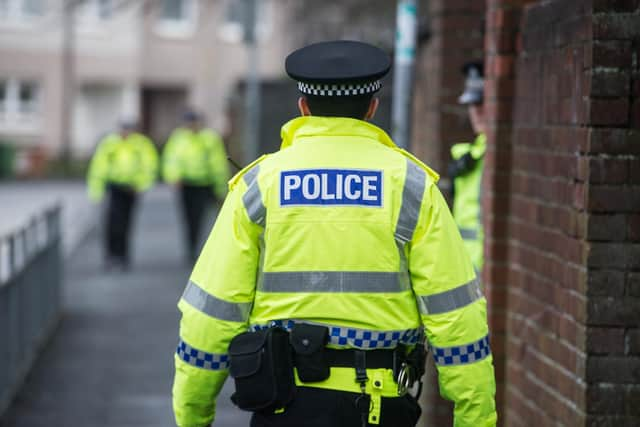Covid: Post-traumatic illness among frontline workers is a huge problem that the NHS will need help to tackle – Tom Wood
Time to take a deep breath, reflect on the damage done and consider what lies ahead. Recovery will surely be slow and hard. Many remain traumatised by the untimely death of loved ones, made worse by their inability to hold a traditional funeral or grieve properly. Then there is the catastrophic damage done to our economy, the huge backlogs in our health services and the incalculable effect on children caused by a year’s education lost.
Covid-19 has further laid bare the social inequalities in our society, the gaps have widened. The working burden of the pandemic has also fallen unequally. While many of us have managed to hunker down and shelter, our frontline workers have been terribly exposed.
Advertisement
Hide AdAdvertisement
Hide AdNo matter how good the protection equipment, face-to-face contact carries risk. Health service workers were in great danger but other groups of workers were also exposed. Many bus drivers fell victim to the virus as did operational police officers and others who could not shelter.
The long-term consequences for these men and women may be severe. Many health service workers are already showing signs of anxiety and post-traumatic illnesses. Even if we do manage to suppress the virus, Covid-19 will have a long tail. Will our health services be able to cope with this huge surge in demand? Despite all the political promises it seems unlikely. The NHS was designed as a safety net not a catch-all.
There is, of course, professional help available in all our public services, welfare departments are well equipped. But what happens when an individual leaves their job? They carry their baggage with them but not the support of the organisation. Isolation and post-traumatic illness can follow. The armed forces have long recognised this problem. Over the years, forces’ charities have done invaluable work to fill the gap. Now the police service is catching up.
For the last four years, the Retired Police Officers Association Scotland has been building a support system for retired officers. The transition and well-being support service has been launched this month and the timing is perfect. It is an ambitious project.


A partnership between the association, Police Care UK, Age Scotland and Police Scotland will help in transition and continuity of support for officers leaving the service. Any specialist help being provided in service will continue uninterrupted. The scheme will also offer a signposting service to assist former officers in moving on.
In every region of Scotland, trained volunteers are in place to provide these services – not to replace health and social care services but to augment them, provide early interventions and hopefully divert some of the demand.
The leaders of the Retired Police Officers Association, volunteers all, should be congratulated for leading this ambitious project. It deserves success.
As we step forward into the post-Covid world, such schemes are perhaps the only realistic way of meeting the huge rise in demand for support that we know is coming.
Tom Wood is a writer and former Deputy Chief Constable
A message from the Editor:
Thank you for reading this article. We're more reliant on your support than ever as the shift in consumer habits brought about by coronavirus impacts our advertisers.
If you haven't already, please consider supporting our trusted, fact-checked journalism by taking out a digital subscription.
Comments
Want to join the conversation? Please or to comment on this article.
